SOPP405: I’m wondering if you know of any settings of the psalms for liturgical use in Lithuanian?2/28/2019
Vidas: Hi guys, this is Vidas!
Ausra: And Ausra! V: Let’s start episode 405 of Secrets of Organ Playing Podcast. This question was sent by Justin, and he writes: Hi Vidas and Ausra, Greetings from Australia. I’m wondering if you know of any settings of the psalms for liturgical use in Lithuanian? Ideally I’m looking for the responsorial psalms for Sundays only for all three years. I would be grateful for any advice you may have. Regards Justin V: It appears, Ausra, that Justin is interested in knowing more about Lithuanian psalms. Right? What we sing in churches, and how it is that we do it. A: Well, because Lithuania is mostly a Catholic country, one psalm is required for each Mass. V: Right. I was checking with our friend Paulius, who is the organist of St. Joseph Church here in Vilnius, if he knows of any collections of responsorial psalms, but, there seems to be a lack of such systematization in Lithuania, and what he does is he creates his own. So, Ausra, if you had to sing your psalm tune today—you went to the mass, and you found a text of the Psalm, and you had to figure out a melody, what would you do? A: I would use those eight psalm tunes. But for a refrain, I would just use maybe one phrase from that psalm tune, or something in that mode. V: Something like the notes of the mode? A: Yes, something that would be easy for people to repeat, to remember. V: I’d do the same, but sometimes I tend to repeat myself, and it’s kind of boring, too. So…. A: Well, you know, if I may say so, during psalms, not the melody is the most important thing, but the words! So, whatever. You can sing them on one single note, and it would be still okay, because it’s recited text, actually. V: What if the Psalms, when, for example the cantor alone sings, is on mostly repeated notes, like in psalm tone, but the refrain is more or less fluid without too many repeated notes. Is it better? A: Well, it might be difficult for the congregation to respond if the refrain is very elaborated. Because, I do have a very good musical memory, but sometimes the cantor picks up a very interesting refrain; even for me, it’s too hard to follow, and I remember it right after maybe three or four repetitions, you know, maybe at the last response of that psalm. But it needs to be memorable, that you would be able to remember it right away, after one repetition. V: You’re right. And I would probably use the notes of the mode or the psalm tone, and start and end on the first note of the mode, so that people would know where the so-called tonic pitch is. A: Do you remember that old Senkus book…. V: Hymnal? A: Hymnal, yes. I think he had quite a few hymns based on Psalms, basically. V: That’s right, I remember that. So, Senkus was a musically trained priest, who created two editions of his hymnal, and he composed his own refrains of the Psalms, too. So anybody with some training and musical knowledge in their own way, not only in Lithuanian, but in their own language too. A: Sure. V: So guys, we hope this was useful. Please experiment with your psalm tones, and let us know how it goes. And, please keep sending us your wonderful questions; we love helping you grow. And remember, when you practice, A: Miracles happen.
Comments
Would you like to master Two Part Invention No. 14 in Bb Major, BWV 785 by J.S. Bach? I have created this score with the hope that it will help my students who love early music to recreate articulate legato style automatically, almost without thinking. Thanks to Alan Peterson for his meticulous transcription of fingering from the slow motion video. Basic level. PDF score. 1 page. 50 % discount is valid until March 6. Check it out here This score is free for Total Organist students.
Vidas: Hi guys, this is Vidas!
Ausra: And Ausra! V: Let’s start episode 402 of Secrets of Organ Playing Podcast. This question was sent by Ariane, and she writes: I started with week 3 of my hymn improvisation course and tried to play my current organ pieces at a faster tempo (which I saw on YouTube- St. Sulpice...). But when I play faster it just sounds rushed, irregular and without any real feeling. V: Let’s discuss, Ausra, first, those Hymn Improvisation Course exercises that she is working on in week three, because the first four weeks is created like note against note counterpoint, so against one note of the chorale, the student has to add one note of the counterpoint, and vice versa, and they switch, bass-soprano, soprano-bass. Does this sound reasonable for four weeks in a row? A: Yes, I think that’s very good for starters. V: I think there is no need to rush, because of course, you could do each week, one more difficult set—two notes against note, one note or three notes against one—but that would be, I think, too fast. A: Especially if you are a beginner, because usually exercises like this are done in the written form before playing them and practicing them, so… V: So, she’s in week three, and next week, she will get a set of exercises, too, and then in week 5, we will start practicing improvising the second voice in 8th notes, for the selected hymn tunes, which means two notes against one. And that will be another level. I think by that time, she will have some fluency over the first level, note against note, and she will be ready to jump in and get started with 8th notes. A: Yes, if you go step by step, then yes. V: It could be even a nice introduction for your hymn of the day when you are introducing your hymn, you can play with two voices and improvising the lower part, or improvising the upper part, but just note against note in church. A: Yes, it’s possible, although, maybe you don’t want to play an entire hymn as an introduction. It might be too long. V: To make it sound more appealing, you can add more gravity to the registration. Maybe, I would say, Organo Pleno with Principal Chorus and Mixtures. That’s sounds sometimes convincing. A: Well, that’s possible, yes, especially if it’s an opening hymn. V: And then, Ariane has, I think, a problem of playing faster, her pieces, because she looked at YouTube recordings of her piece, and played at St. Sulpice, and she probably felt that she could also try out at a faster tempo, but she writes “The playing sounds rushed, irregular, and without any feeling.” Why is this, Ausra? A: Well, there might be different reasons. First of all, she did not mention what she thought about that YouTube recording at St. Sulpice, but I guess she might have liked it, because after she listened to it, she tried to play faster, and then it sounded bad for her. So, what that might mean, my guess as a professional musician, could be that she simply is not ready to play faster. V: You know what I wrote to her on Basecamp is that slow practice leads to fast progress, I think. A: It makes sense, of course. V: I like playing pieces very slowly for a long time without rushing. And if I need to rush, I know there is something wrong with my planning. Right? If I’m still playing slowly, and my recital is three days from now, I know there is something wrong with my preparation and scheduling and planning in advance, because as I say, it has to be ready, for concert tempo, two months in advance, I think. That’s a safe zone. Don’t you think? A: True. And in general, I think that picking up the tempo is very individual for each person. Because what works for one could not work for another, and for different reasons, and not only because of ability to play, but also because of the temperament, too. For example, when I heard for the first time how Joris Verdin plays Franck, well, it sounded really impressive! I was basically very much surprised, and some pieces it works pretty well, like in the Finale piece, for example, I think that that tempo worked pretty well, and no ritenuto at the end, but some pieces sounded just ridiculous for my taste. V: And you have to remind our listeners, for which reasons Joris Verdin is famous. A: Actually, for playing Franck very fast. V: Because his theory is that the metronome markings of the day for the 19th century were meant for 19th century metronomes, and those were made a little bit differently, and therefore, the tempi should have been faster. And Franck would sound more virtuosic, then! A: Well, yes, but why I wouldn’t play as fast, is because Franck’s harmonies are incredibly rich and incredibly beautiful. And, when you are playing them so fast, you basically don’t have time to enjoy them, to listen into them. But it’s a matter of taste, too. V: Right. Sometimes you need to lean on dissonances, as our former professor Pamela Ruiter-Feenstra said, and…. A: Well, you know, Americans very often talk about dissonances, and I have heard in Europe, that somebody laughs at Americans, because they always lean on the dissonances, and sort of exaggerate the role of dissonance in music, but the more I live, the more I agree with the Americans, that it’s really very important to lean on dissonances, because why are all suspensions written on the strong beats? It means something to you. V: Right. So, when I’m going to play today, I’m going to lean on dissonances even more. You will hear it! A: Okay! I’m looking forward to it! V: And, you know, I’m playing Ad Patres Sonata by Brunius Kutavičius in preparation of my Notre Dame recital in the summer, and you know, this piece is entirely made of dissonances. A: Well, but that’s another story! It’s a modern composition in minimalistic style, so that’s completely another story. What I was talking about is music written in a common period. V: I will still lean on dissonances, you will hear it! A: Good luck with that! Then your sonata will take forever to play! V: Yes. Thank you guys for sending wonderful questions; we love helping you grow. And remember, when you practice, A: Miracles happen! Thank you everyone for participating! You all made us very happy with your entries.@laputis and I selected the following winners: 1st Place By @contrabourdon: https://steemit.com/secretsoforganplaying/@contrabourdon/secrets-of-organ-playing-competition-week-8 Lovely homage to Vierne's Berceuse... 2nd Place By @alfredmusic:
https://steemit.com/secretsoforganplaying/@alfredmusic/secrets-of-organ-playing-contest-week-8-my-entry-alfredmusic Your enthusiasm is contagious! Click on the links to see their full posts and support them. Congratulations to the winners! I will send them the prizes soon. We hope to see even more entries next week! Here's a link for Week 9: https://steemit.com/@organduo/secrets-of-organ-playing-contest-week-9 And remember, when you practice, miracles happen! Have you ever wanted to start to practice on the organ but found yourself sidetracked after a few days? Apparently your inner motivation wasn't enough.
I know how you feel. I also was stuck many times. What helped me was to find some external motivation as well. In order for you to advance your organ playing skills and help you motivate to practice, my wife Ausra - @laputis and I invite you to join in a contest to submit your organ music and win some Steem. Are you an experienced organist? You can participate easily. Are you a beginner? No problem. This contest is open to every organ music loving Steemian. Rules
Rewards Every participating entry will receive our upvotes. Additionally, 3 winners will be rewarded some STEEM in the following manner: 1st Place: 10 STEEM 2nd Place: 6 STEEM 3rd Place: 4 STEEM Judging @laputis and I will serve as judges. We will pick winners based on what sounded the most interesting and best performed to us. Our goal here is to support the community while motivating you to practice, inspiring to create some amazing music and adding more smiles to everyone's day. Questions, comments, ideas? Please let us know your feedback about this contest. Support our fellow contestants - upvote, resteem and comment their entry to let them know specifically what did you appreciate about their music. Also stay tuned for the post about winners from Week 8! If you would like to participate but don't have Steem account, let me know your desired username by contacting me on my blog https://www.organduo.lt/contact.html and I will create an account for you very quickly. We hope to see even more entries next week! And remember, when you practice, miracles happen!
Vidas: Hi guys, this is Vidas!
Ausra: And Ausra! V: Let’s start episode 399 of Secrets of Organ Playing Podcast. And today, I’d like to read some of the feedback we received about the Total Organist program, because I asked recently this question of our members: “How do you like Total Organist, so far?” And, Ariane, Jeremy and Ruth replied with their comments. Ariane: I love the program! I feel very much at home with the organist community and feel that my practicing and learning matters. I am working my way slowly through a couple of courses and the nice thing is I can totally work at my own pace. Thanks Ausra and Vidas! Jeremy: It is fantastic to have a community which understands the issues of being an organist, finding practice time, and the work of preparation for services and music. Ruth: Total Organist means a great deal to me. It is putting me in touch with musicians around the world. It is stimulating through its presentations and discussions. I am truly grateful for this experience! V: So, once in a while, people send these feedback to us, and this is really nice. A: Yes, it’s wonderful to know that we are useful to somebody, and we can help people in the area that we love ourselves, and help others to experience it and to know it. V: So, for example, Ariane appreciates the community, and probably she means that she can keep in touch with other members of our program through Basecamp. A: I think that’s a very nice thing, because I saw that in many actual places, an organist by him- or herself might feel quite lonely! Don’t you think so? Because they are playing such an instrument that they are always alone! V: Right. Even if you are leading a choir or accompanying the choir, if you are playing, you are practicing on the organ bench mostly alone! A: So, I guess it’s very nice that there is a platform where you can meet people like you and share your experiences! V: Yesterday, I went to our monthly book club meeting, and you couldn’t go because you felt ill. And, it reminds us also a little bit about this community, and once a month we meet and discuss the books that we read, and we are looking forward to the next meeting. Right, Ausra? So, it’s kind of similar to the Total Organist community. It’s only online, we don’t meet face to face, yet, but the experience is similar. We share common interests and support each other. Ausra, do you think that practicing alone would be slower in terms of advancement? A: I think yes, because it’s always nice to have encouragement from others and to share experiences. That way, you can grow faster, and overcome problems easier. V: And Jeremy also comments about the community, that he appreciates the most, and Ruth appreciates that she is in touch with musicians around the world. So, I guess it all comes down to this community. It’s a rather compact community—we have around 80 people in our group, maybe more—but not all of them are active on Basecamp. Everyone probably receives those questions at the end of the day to report what you have been practicing today, or what you are struggling with, or something like that, but people do, they write, and sometimes I don’t even need to interfere in their discussions. I see that a few people get together under one comment, and support each other. That, to me, is a sign that people care about others in the group. A: That’s a good sign, I think. V: Yes. They’re invested with their time and their energy in this group and want to see other people succeed, and by seeing and helping others succeed, they also succeed faster. A: True. V: It’s a nice feedback cycle to have. Of course, other people are lonely and individualistic, right? For those people, group settings and group environment probably is not as...I would say… attractive as sitting on the bench alone with the music and the instrument and with their thoughts and ideas. What about you, Ausra? A: Well, I always thought about myself as a very unsocial person—very individualistic. But the more I live, the more I understand that really, we are social. V: Social animals! A: Yes, just like dogs. So, I guess that sooner or later, everybody comes to that… V: Understanding? A: ...understanding, yes. V: The sooner, the better! A: Yes. It doesn’t mean that we don’t need our time to be alone, but we still need to communicate with others—to socialize. V: And you know, we are drawing our comics, our Pinky and Spiky comics, and putting them on Steemit, and we also have this little community where people can participate in contests of drawing those animals and comics themselves. And the theme changes every week, and it’s sort of very nice to see people get involved, and also to support each other and comment each other. It’s an open group, not a closed group like Total Organist—anybody can join, but the principle is the same, I guess. Ausra, do you feel excited when somebody comments your drawing? A: Yes, actually I’m waiting for those comments. It’s part of my day. V: So, probably it’s true to say that other people are waiting for other people’s comments as well, and it’s a cycle, as well. So it’s the same with Basecamp and Total Organist here. Kind of people who support each other, care for each other and wait for those comments, and they can count on them, because the questions arrive at the end of each day! And they get automatic questions: “How was your day?” or “What are you practicing today?” and you don’t need to think about what to write; you just document you just document, a little bit, your activities. To me, that’s a very valuable tool to have for people to help them grow. And I hope we’ll see more involvement from our group in the future, too, Ausra. A: I hope so, too. V: Ok, guys, this was Vidas, A: And Ausra. V: Please send us more of your questions; we love helping you grow. And remember, when you practice, A: Miracles happen. Would you like to participate in our Secrets of Organ Playing Contest? There are less than 24 hours left to submit your videos. We have already 2 entries but we need yours too! Here are the rules:
https://steemit.com/secretsoforganplaying/@organduo/secrets-of-organ-playing-contest-week-8 Hello everyone! Howard from our podcast transcription team can't do transcriptions anymore. We had three people on the team with him but four would be better for rotation.
So we are looking for two people who can type fast and transcribe our conversations from MP3 file. In exchange for their work they will get subscription to Total Organist. If you know our format, are able and interested to do a couple of transcription episodes per week, please let me know over the weekend. And while we are at it, we are also looking for two people who could transcribe fingering and pedaling from the slow motion videos in exchange for Total Organist subscription. We have 4 people on this team but I have more videos lined up and having two more people to do this would speed things up and help you provide the practice faster. We work with DocHub program which lets edit PDF files and add text markings and numbers to the scores. DocHub is a free program which is connected with Google Drive. So please let me know over the weekend if you would be a good fit to do podcast transcriptions or fingering/pedaling transcriptions in exchange for Total Organist.
Vidas: Hi guys, this is Vidas!
Ausra: And Ausra! V: Let’s start episode 396 of Secrets of Organ Playing Podcast. This question was sent by Dianne. And she is our Total Organist student, and she answered my question of what she is struggling with this week. So, she writes: This week I’m making stupid mistakes (and different ones every time). The difficult passages I practice go well, and I mess up on the simple parts. Focus, maybe? I am also getting over some virus thing, and I feel a bit foggy - brained. (More so than usual, anyway. Haha!) V: Ausra, do you sometimes feel that you are making stupid mistakes in simple places? A: Sure, and it means that I cannot focus, or that I focused too much on difficult passages and then I could not play any easy ones. V: Do you think that Dianne might be doing this because of her virus? A: Definitely. If she feels foggy, I think this is an indication that she should not be practicing. V: She should wait it out. A: Sure. It surprises me, actually, how little consideration people give to their health. V: I played a recital once while sick. A: I remember that. It wasn’t a smart thing to do. V: It was draining my energy, and I just couldn’t cancel. You know? A: Well, you could cancel. You always can cancel. It’s better than to play when you are sick and have a fever and then damage your health permanently, because you can injure your heart by doing that. V: What do you mean? A: Well, even kindergarten kids know that! V: So I am stupider than kindergarten kids! A: Sure! Nowadays the Internet is full of all kind of information about that. V: What do you mean “sure!” A: There is all kind of information out about what a virus can do to you if you will not treat yourself and take consideration. V: So you don’t suggest Dianne practicing now. A: Definitely not. V: You know, by the time she hears this conversation, she might be already healed. A: Sure! I hope! V: Because we have a backlog of podcast conversations, and some files are waiting to be transcribed. A: Well, sometimes I’m thinking that people in general think that they are heroes. That they are feeling bad, but they still do what they do on a regular basis. That’s like my students come to school while sick, and they feel almost like heroes, “Oh, I came to school although I have a fever.” Or sometimes I get things like, “I feel so bad, I have a fever, but I came just because of the Harmony...” or “...of the Solfège,” and I’m just thinking, “just go back home. Don’t spread your viruses and your bacteria here.” V: Well, Ausra, to be fair, have you ever gone to school or to your work while sick? A: Yes, but that was earlier, when I still had a good health. And now, after I ruined it, I know what it is! V: You have life experience. A: Sure. V: And nobody can take that away from you. A: That’s right. But nobody listens to me. V: I do! A: I doubt it! V: So… yeah... A: But everybody has to decide for themselves. Like, last Friday for my senior students, I was sort of preaching that, “Oh, you need to watch for your hygiene, especially in Winter time when everybody sneezes or are sick all around. You need to wash your hands, or to cover your nose when you are sneezing,” and things like this. And then, I got a stomach flu during the weekend. So, I did everything in my power to go back to school on Monday, because if I would not, and my students would find out that I had the stomach flu, then they could tease me! “What about…” You know…. “Don’t you wash your hands?” So, I didn’t want to advertise something or preach, but I’m talking from my own experience. V: I think it’s wise to always share your own experiences, because you never know what other people go through, and what is their experience. Even though Dianne wrote something, it’s just an excerpt of her life, right? We don’t know everything. But you know about yourself, and how you would behave and how you have behaved in the past. Right? A: Well, because in general, I think if you want to do well on the organ that your practice would be productive, you need to have good health condition, because it takes a brain, and it takes a body, too. V: So, we need to stay in shape, we need to be active, moving, and then eat healthy, probably, what else…. Sleep well… A: Sleep well, yes. V: Eight hours, probably… A: Well, seven hours, at least. V: Seven? I would prefer eight, but… but not everybody can sleep that long. And then, of course, heal their short term illnesses, like viruses. A: Because if you’re feeling foggy and you’re still practicing, what good would such a practice do? You will not improve your organ performance quality with such a practice, and you might damage your health—ruin your health. V: So, when you’re sick, Ausra, for example you, with your stomach flu, or bacteria infection that you had at the beginning of the year, is there anything that you can do besides lying in bed? A: Listen to the radio. I don’t know, it depends on the person, but really, if you have a fever, you cannot practice, you cannot read, you cannot watch TV. Maybe you can listen to radio. V: Listen to audio A: Yes, listen to audio. Not with your headphones. I don’t think that would be good. V: Listening to audio books is fine. A: Yes. You could listen to organ recordings. That way, you would still be in touch with organ. V: Organ world, yeah. Okay, lots of things to think about when you are sick, but I guess organ playing shouldn’t be the first on your mind when you are sick. A: Sure, because next time when you will feel good, you will do double as much, and I think it will compensate for what you missed. V: And, sometimes, when I say that, for example, I have to practice, practice, practice because my recital is coming up in a week or two, and now I’m sick and I don’t have time to be sick, I think it’s just poor planning. A: Yes, and that’s why I’m always telling people that you need to be prepared ahead of time, that if something will happen, you would still feel fine. You would still feel calm, that you still have some time, and you will be okay. And you wouldn’t need to practice with a fever. V: Yeah, be ready two months before, at least, to play your run-through of the recital or public performance. Then, you will have plenty of time to improve, and even if you get sick, you will be okay, I think. Right. And then, of course, improvisation helps. Imagine if your recital is coming up and you don’t have time to practice, but you constantly practice improvisation, you feel calmer, because you know that if you feel okay on the day of the performance, you can just sit down and play from your fancy. Right, Ausra? A: But that’s if you are an improviser. V: I mean, that could be the goal: to become an improviser. One of the benefits to become an improviser is that you have this freedom. Okay, thank you guys for sending those wonderful questions; we love helping you grow. We don’t always have the answers that might be suited for you personally, but we certainly can share our experience, and we hope this is helpful in some way. Okay, this was Vidas, A: And Ausra, V: And remember, when you practice, A: Miracles happen!
Vidas: Hi guys, this is Vidas!
Ausra: And Ausra! V: Let’s start episode 393 of Secrets of Organ Playing Podcast. And this question was sent by Ariane. And she writes: I would like to finish my pedal course and move on to a hymn improvisation class, perhaps the one on the lowest level - which one would that be? V: So, Ausra, Ariane is our Total Organist student, and obviously, she wants to take those courses which are the most beneficial to her. And now, she is on the course to finish the pedal work, and moving to the hymn improvisation class, and I have created, in the early days, this level one course of Organ Hymn Improvisation Master Course. Would you like me to tell our listeners about it? A: Sure! Go head. V: So, this course is a video based course, and I recorded those videos in my church, Vilnius University St. John’s Church, with the hope that people can develop the skill of playing two part chorale improvisations. Just two part, for this level. Does it sound doable? A: Sure, I think it’s much easier to control two voices, comparing with four, for example. V: In our Organ Playing Master Course, it’s of course just one voice at level one. You start with solo voices, but with hymn improvisation, one voice would mean, probably, just a theme, and the theme itself is not improvised. A: Sure, you really need to have some support melody. V: So, I’m treating this course like a counterpoint in practice course. You know, in counterpoint, we have 5 species of counterpoint, and this system is devised to be very systematic for learning later types of polyphonic writing such as fugue. A: Sure. V: Do you like counterpoint, Ausra? A: Yes. I like it. It has strict rules. V: Which pieces are your favorite? A: Do you mean written counterpoint? V: Mhm. A: I never thought about it in such a way. And what are yours? V: Maybe we should first talk about what those pieces are, right? A: Sure, tell us! V: The first species of counterpoint, and the beginning of my course, is when the chorale notes move at the same time as the counterpoint melody moves. In other words, note against note counterpoint. One on one. So, then we have some rules, like to move in opposite direction than the melody to avoid parallel fifths and octaves. What else…. To play in sweet sounding intervals, such as thirds and sixths. And that basically creates a very basic simple disposition of voices, and the melody could be in the soprano or in the bass as well. Do you think, Ausra, that Ariane could benefit from this beginning? A: Well, I think any musician could benefit from this beginning, because most of the musicians at some point of their life actually have done exercises in this species of counterpoint. V: But, usually, they do in written form, only. A: Well, it’s just a matter of how advanced you are, because to write it down is easier, because you have time to think. When you’re playing it, performing it on the instrument, then it’s harder. It’s sort of a hard level, but I think it’s beneficial. V: And even later in life, if your skills are more developed, it’s very good to go back to your basics. For example, I find it very fascinating to put a hymnal or chorale book in front of myself and just improvise those species of counterpoint. A: Because, although the rules seem so simple, it’s not as simple to do things when you actually start doing it, because the simpler rules are the hardest to achieve a really nice result. V: And in second species, we have two notes against one. So, against one chorale note, you have two counterpoint notes. There we have not neighbor notes, passing notes allowed. A: And that gives more possibilities already. V: Mhm. And in species number three, we have four notes against one, like imagine a whole note in the soprano, and quarter notes in the bass, or vice versa. So we deal a few weeks with that. And then, the fourth species deals with syncopations, where you create dissonances, like intervals of seventh or second or ninth or a fourth, in this case it could be dissonant, too. A: So basically, it teaches you to do suspensions. V: Yes, syncopations are about suspensions. And we finish this course with mixed species in number five, and there you can combine all those previous movements in quarter notes, in half notes, and in syncopations as well. A: It seems like when you’re learning these five species of counterpoint, you could actually improvise a nice set of variations. V: Even in the first level, when you have… A: ...only two voices… V: Only two voice, you already have two variation possibilities. And on the organ, you can actually expand with different registrations—it’s very beautiful, too. Imagine playing the chorale melody with the Reed and the counterpoint with a Principal, for example. And then you switch with another Reed in the bass, and with a Flute combination in the soprano, for example, and it sounds really convincing, even at this level, note against note. I’ve tried it before, and even did live streams on Facebook, and people reacted nicely to that, and not only people, but myself, I’m listening from a distance, sort of, as a listener, and I would think that in a service environment, this could be done, even at the liturgy, too. A: Sure! V: But of course, after a few weeks, you move to the second level, and you can do two notes against one. That’s like a jump to the next level, and very exciting. So guys, we hope that everyone who is interested in chorale based improvisation, can take advantage of this course, because it’s just a foundation—level one. From there, you can add a third voice, obviously, or you can do ornamented chorales, where the chorale melody is no longer stationary, but in itself it can have species, like two notes, like chorale melody can move in half notes, or in quarter notes as well. That’s another creative path to take. And in species number five, in that level, both voices could move in imitation and in unpredictable ways, creating polyphonic duets, not unlike Palestrina and Olando di Lasso would write. And for organ composers, it would mean Samuel Scheidt, easily, and, of course Sweelinck. A: Yes, they all were masters of counterpoint. V: Right. Thank you guys, this was Vidas, A: And Ausra, V: Please send us your wonderful questions; we love helping you grow. And remember, when you practice, A: Miracles happen. |
DON'T MISS A THING! FREE UPDATES BY EMAIL.Thank you!You have successfully joined our subscriber list.  Photo by Edgaras Kurauskas Photo by Edgaras Kurauskas
Authors
Drs. Vidas Pinkevicius and Ausra Motuzaite-Pinkeviciene Organists of Vilnius University , creators of Secrets of Organ Playing. Our Hauptwerk Setup:
Categories
All
Archives
July 2024
|
This site participates in the Amazon, Thomann and other affiliate programs, the proceeds of which keep it free for anyone to read.
Copyright © 2011-2024 by Vidas Pinkevicius and Ausra Motuzaite-Pinkeviciene.
Terms of Service and Privacy Policy
Copyright © 2011-2024 by Vidas Pinkevicius and Ausra Motuzaite-Pinkeviciene.
Terms of Service and Privacy Policy


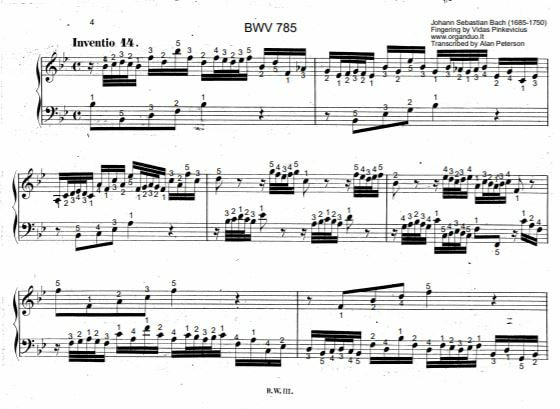
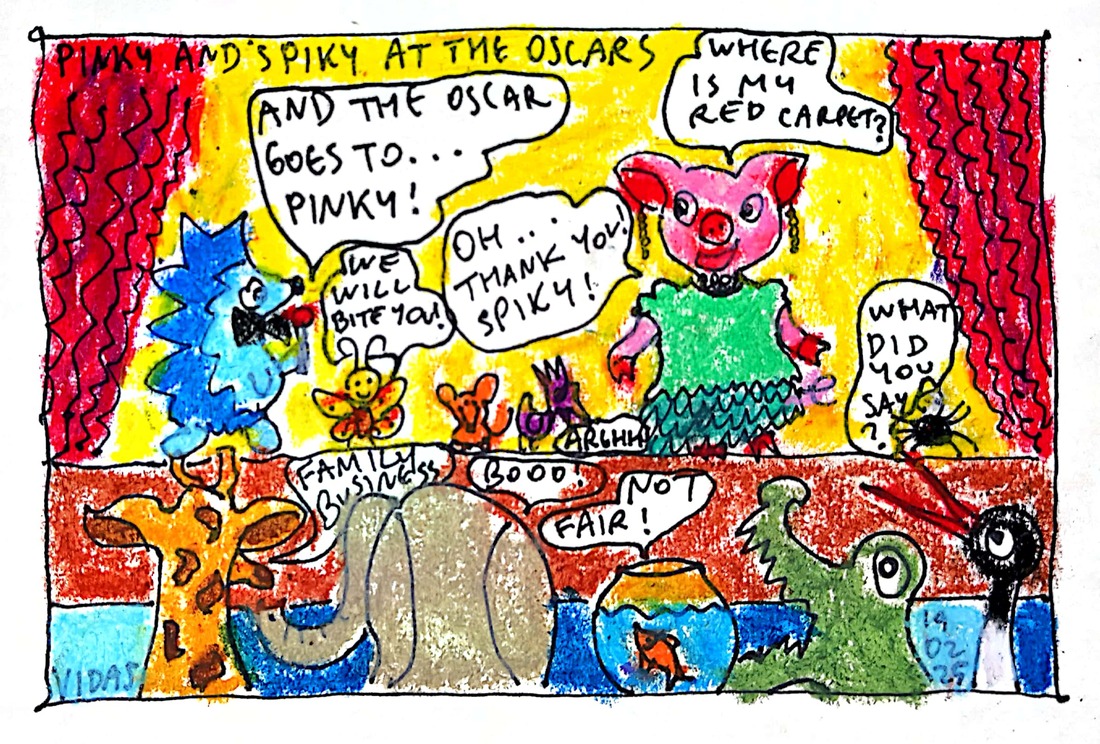
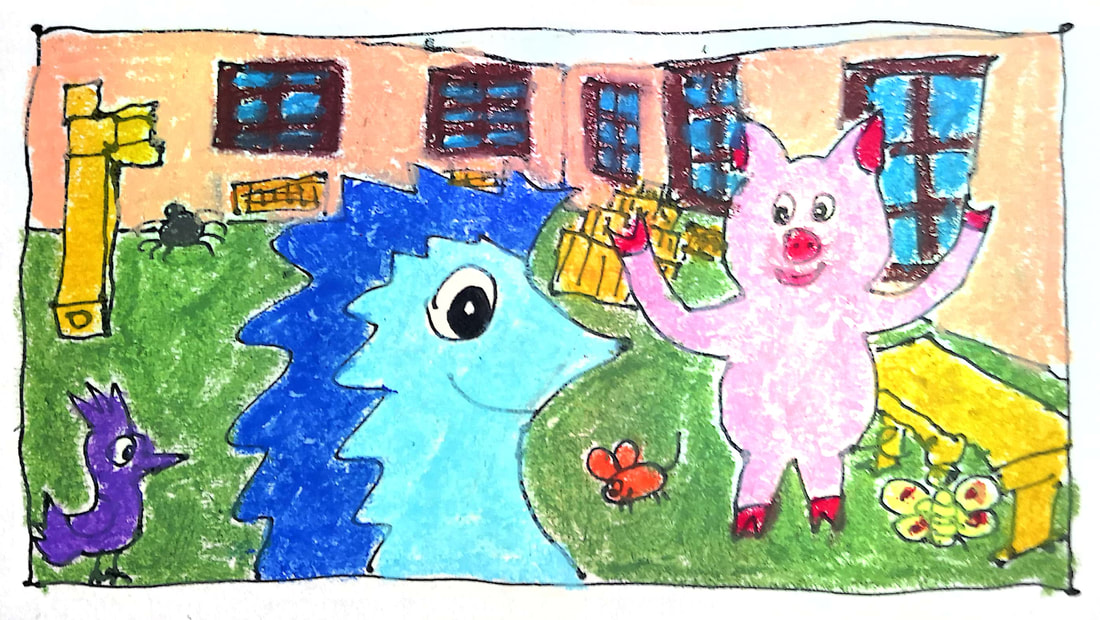
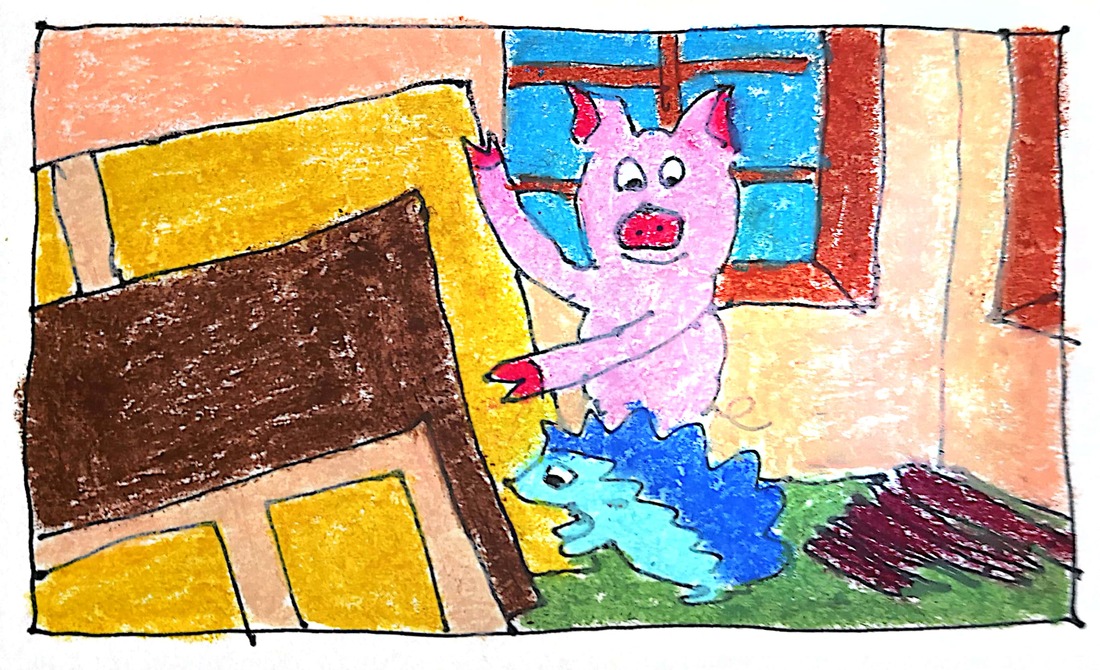
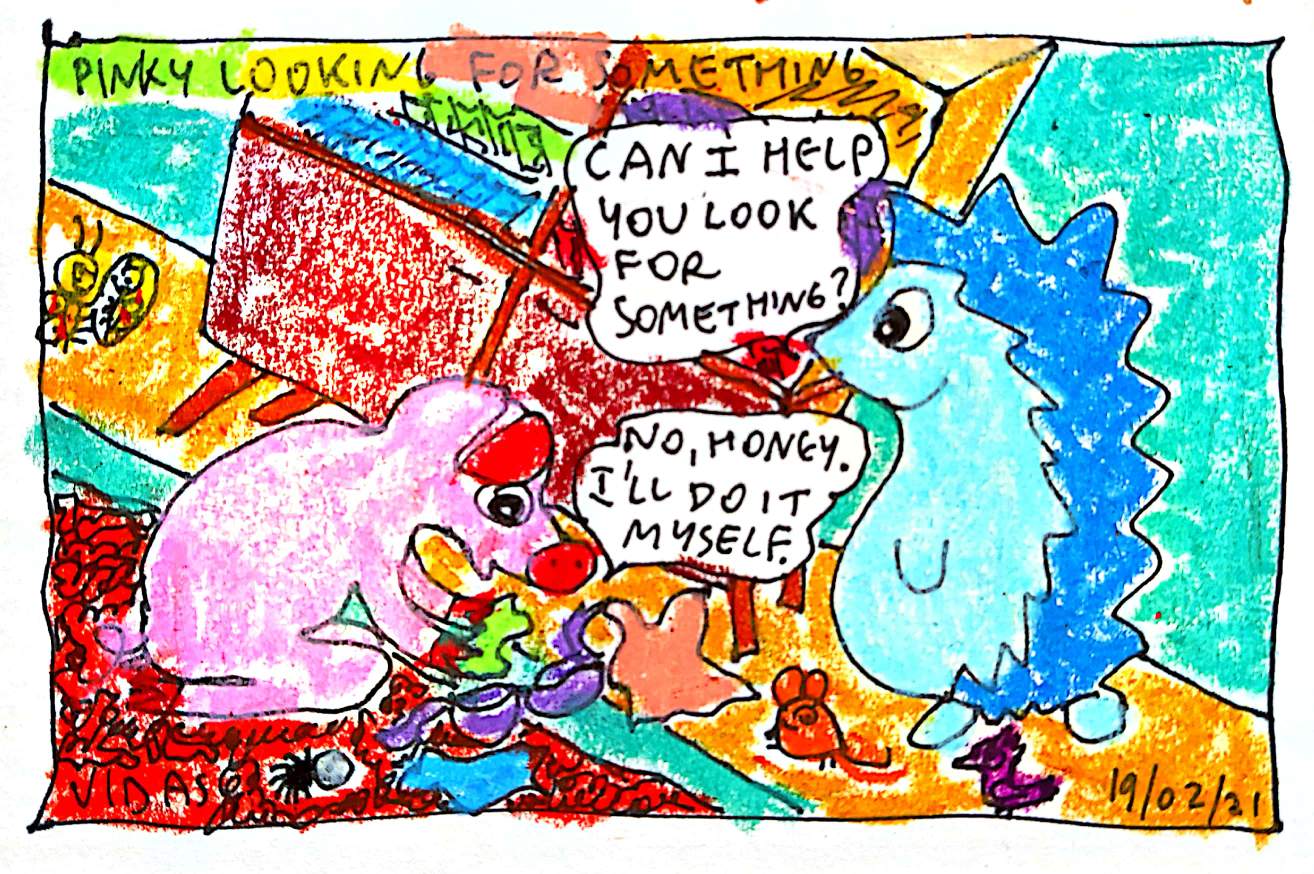
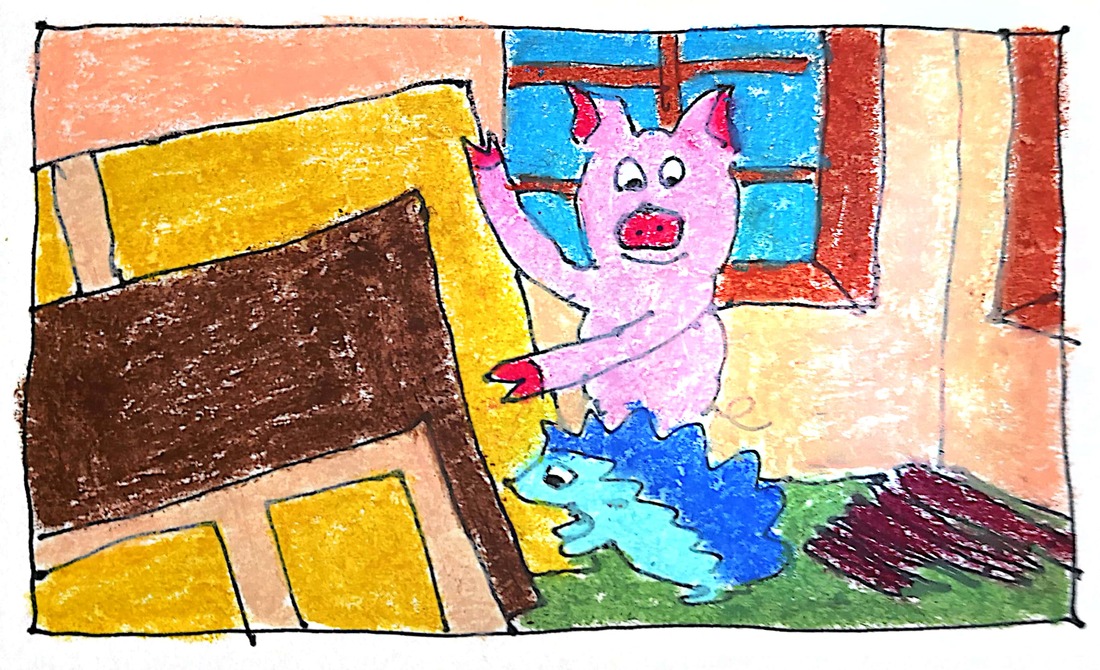
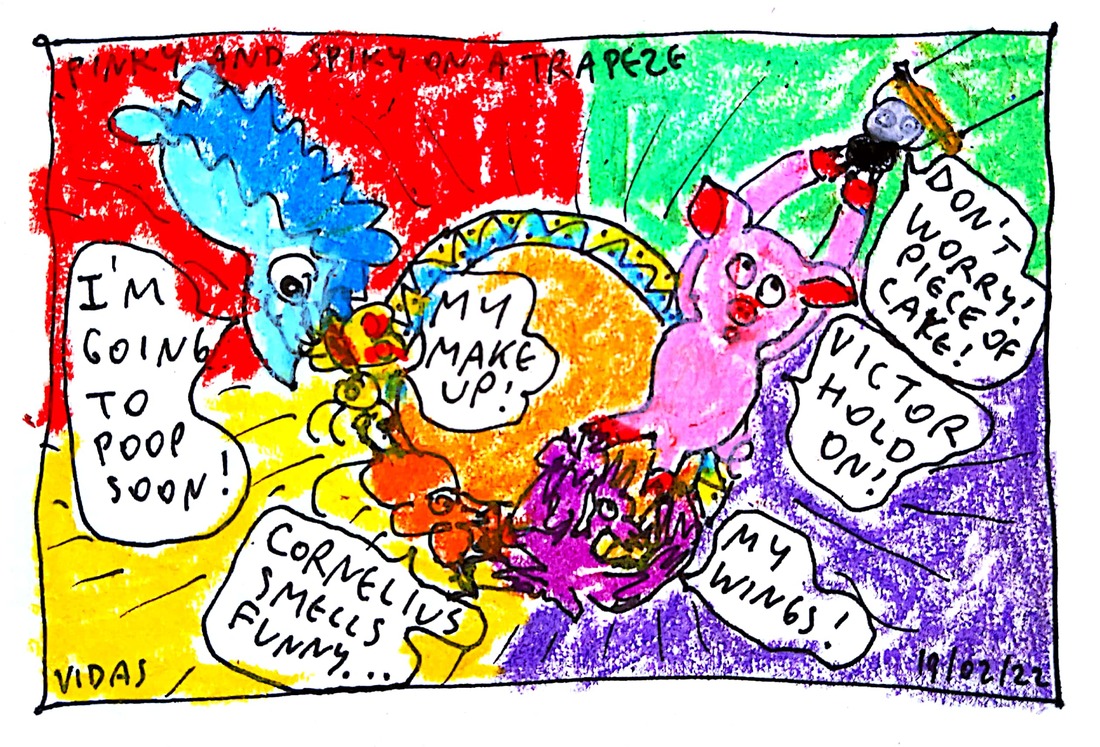
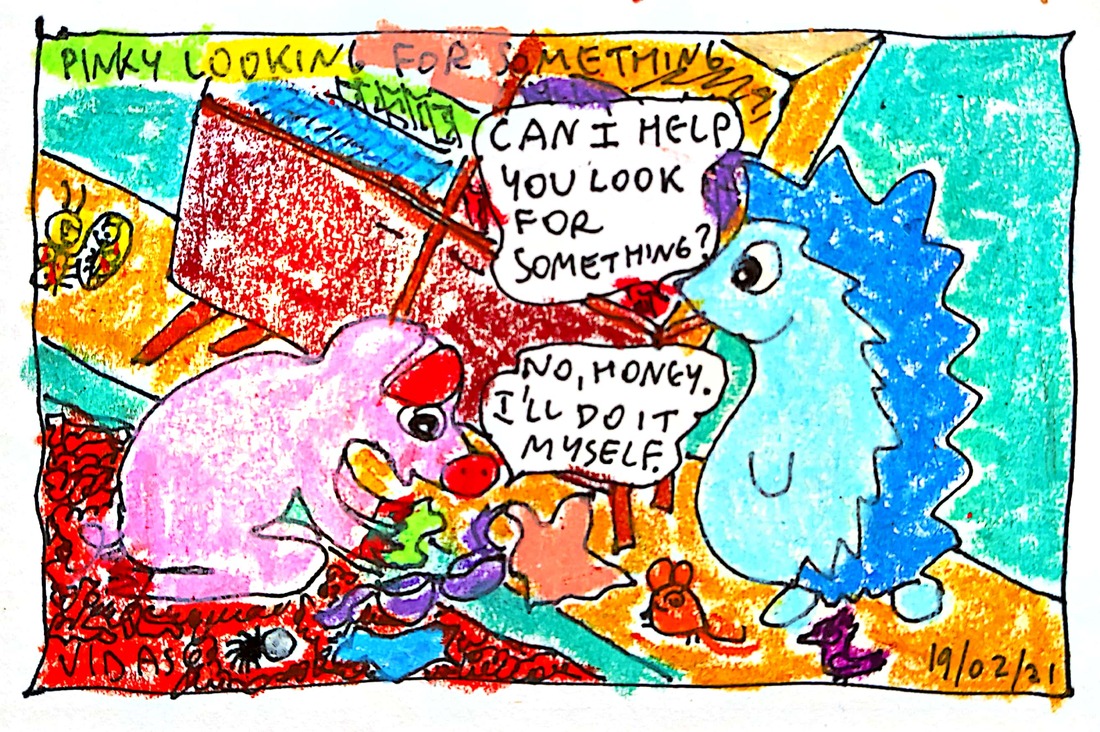
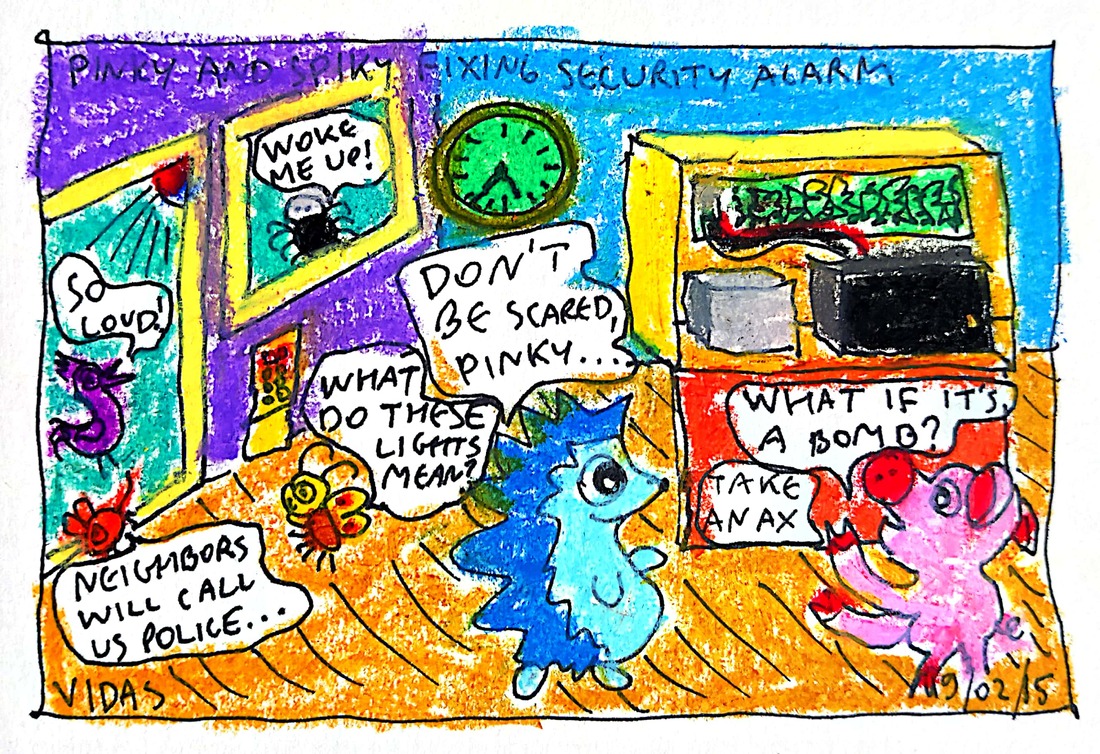



 RSS Feed
RSS Feed